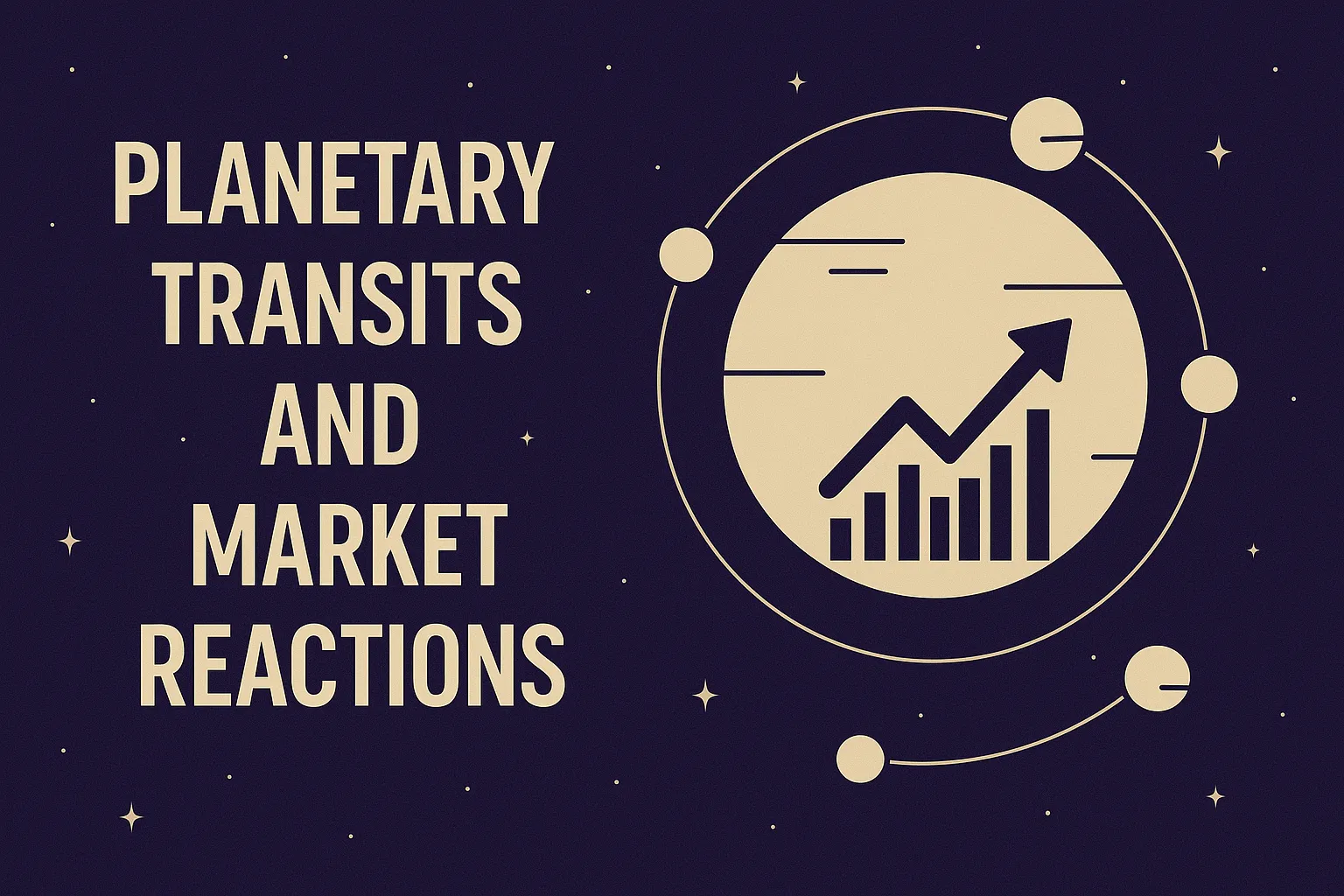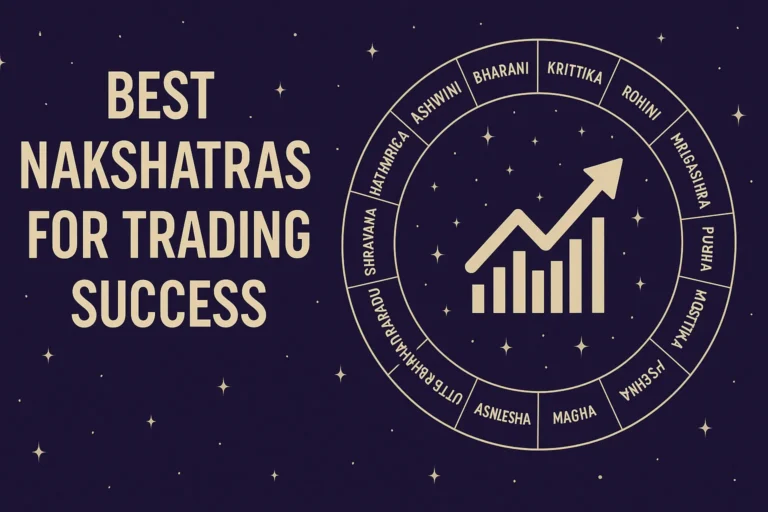Planetary Transits and Market Reactions
In Vedic astrology, planetary transits are among the most significant tools used to predict large-scale shifts and behavioral trends. When applied to the stock market, transits can reveal upcoming volatility, bullish phases, or corrections driven by collective sentiment. Traders attuned to these celestial changes often use them to time their entry and exit strategies.
In this article, we’ll explore how planetary transits affect market behavior and which planets matter most for traders.
What Are Planetary Transits?
Planetary transits refer to the movement of planets through various signs and houses in the zodiac, influencing global and individual behavior patterns. When major planets like Saturn, Jupiter, or Rahu change signs or form aspects with each other, significant economic and market reactions are often observed.
Key Planets That Influence the Market
1. Jupiter (Guru) – Growth and Optimism
Jupiter’s transits often correlate with expansion in market confidence. When Jupiter enters a favorable sign, traders may see rallies, IPO booms, or bullish trends, especially in banking, finance, and education-related stocks.
2. Saturn (Shani) – Corrections and Reality Checks
Saturn brings long-term stability but short-term fear. Its transits, particularly when retrograde or conjunct malefics, often signal market corrections, policy reforms, or tightening in liquidity.
3. Mars (Mangal) – Volatility and Aggression
Mars governs energy, action, and impulse. When it transits over key signs or aspects other planets, sudden spikes in trading volume and sharp moves (both up and down) are common.
4. Rahu & Ketu – Speculation and Uncertainty
The shadow planets Rahu and Ketu amplify illusion, speculation, and trend reversals. Their transits often result in panic buying or selling, especially in sectors like tech, pharma, or crypto.
5. Mercury (Budh) – Market Sentiment and Communication
Mercury rules analysis, logic, and information flow. Its retrograde periods are notorious for confusion, miscommunication, and erratic market behavior. Watch closely during earnings seasons or major news events.
Historical Examples of Market Reactions
- 2008 Market Crash:
Saturn and Ketu were in conjunction in Leo, creating fear and massive sell-offs globally. - 2020 COVID Crash:
A triple conjunction of Mars, Jupiter, and Saturn in Capricorn led to sharp volatility, followed by a V-shaped recovery aligned with Jupiter’s transition into Aquarius. - Bull Run of 2021:
Jupiter in Aquarius (air sign) along with Rahu in Taurus supported liquidity, innovation, and massive retail participation.
How to Track Transits for Trading
- Use a Panchang or Ephemeris:
Reliable astrology tools like Drik Panchang or Lahiri ephemeris help track planetary positions and aspects. - Watch for Conjunctions and Retrogrades:
When two or more planets align in a sign or one turns retrograde, expect a trend shift or temporary volatility. - Align with Sectoral Impact:
- Jupiter: Banking, finance, education
- Mars: Metals, defense, energy
- Mercury: IT, telecom, brokerage
- Saturn: Infrastructure, real estate
- Rahu: Speculative stocks, crypto
Caution While Using Transit Data
While planetary transits provide strong macro indicators, they should not replace technical or fundamental analysis. Instead, use them as an added filter to strengthen your conviction or caution before entering trades.
Conclusion
Planetary transits offer a powerful lens to anticipate large-scale changes in stock market sentiment and behavior. By understanding when major planets change signs, turn retrograde, or interact with others, traders can better prepare for momentum shifts and periods of uncertainty.
Combining this celestial intelligence with your trading system can help improve timing and reduce emotional decisions.
FAQs
1. Which planetary transit is best for bullish markets?
Jupiter moving into favorable signs like Sagittarius, Pisces, or Aquarius often triggers bullish sentiments and rallies.
2. Are Saturn transits always bearish for stocks?
Not necessarily. While Saturn can cause short-term corrections, it also builds strong long-term support zones and rewards disciplined investors.
3. How does Mercury retrograde affect the market?
Expect erratic market moves, misinformation, and missed signals during Mercury retrograde—especially in sectors like IT, media, and brokerage.
4. Can Rahu transits lead to stock bubbles?
Yes, Rahu can inflate speculative sectors, resulting in short-term bubbles and unpredictable volatility.
5. How frequently should I check planetary transits?
Weekly monitoring is ideal. Focus on major planetary shifts and retrogrades for macro-level planning.


